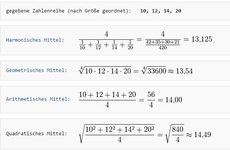Root mean square (RMS) = In mathematics, the root mean square (abbreviated RMS or rms), also known as the quadratic mean, is a statistical measure of the magnitude of a varying quantity. It is especially useful when variates are positive and negative, e.g., sinusoids. In the field of electrical engineering, the effective (RMS) value of a periodic current is equal to the DC current that delivers the same average power to a resistor as the periodic current.
The RMS value of a set of values (or a continuous-time waveform) is the square root of the arithmetic mean (average) of the squares of the original values (or the square of the function that defines the continuous waveform).
Περισσότερα εδώ.
Ποιος είναι ο καλύτερος τρόπος να το αποδώσουμε στα ελληνικά; Βλέπω να διΐστανται οι γνώμες. Π.χ. στο ΙΑΤΕ, μέση τετραγωνική ρίζα. Εδώ, ρίζα μέσης τετραγωνικής τιμής.
The RMS value of a set of values (or a continuous-time waveform) is the square root of the arithmetic mean (average) of the squares of the original values (or the square of the function that defines the continuous waveform).
Περισσότερα εδώ.
Ποιος είναι ο καλύτερος τρόπος να το αποδώσουμε στα ελληνικά; Βλέπω να διΐστανται οι γνώμες. Π.χ. στο ΙΑΤΕ, μέση τετραγωνική ρίζα. Εδώ, ρίζα μέσης τετραγωνικής τιμής.


